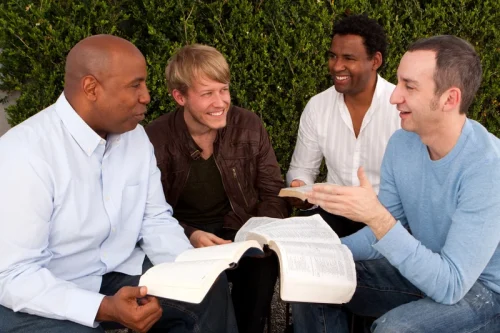
This can be particularly challenging in professional or academic settings, where knowledge and expertise are highly valued. It’s equally important to identify the motive behind question dodging, as this can help you determine the appropriate approach to take. Sometimes, individuals dodge questions because they’re genuinely unsure of the answer or lack the necessary information to respond. In such cases, it may be necessary to provide them with additional details or insights to help them formulate a more accurate response. When individuals feel overwhelmed or threatened, they may instinctively avoid confronting sensitive issues. This is a common trait among those who avoid difficult conversations.
How To Talk To Someone Who Won’t Put Their Phone Down
As Maya Angelou wisely said, “Nothing will work unless you do.” Facing conflict thoughtfully can lead to resilience, self-awareness, and when someone avoids conversation more fulfilling, authentic connections. Another reason someone might avoid answering a direct question is to steer the conversation in a different direction. By changing the subject or deflecting the question, they’re able to maintain control of the conversation and avoid discussing something that makes them uncomfortable or vulnerable. This can also be used as a tactic to distract from the original topic or to redirect attention to a more favorable subject. It’s often used in political debates, interviews, and other public forums where individuals are faced with tough or uncomfortable questions. When someone avoids answering a direct question, it can be frustrating for the person asking the question, as well as those who’re observing the exchange.
How to start the conversation

This can be frustrating, but sometimes people simply don’t have the information or aren’t willing to share it. It’s important not to dwell on it too much and to keep an open mind to alternative sources of information. While all of these tactics are different, they share the feature of interfering with a dyad’s ability to move through an issue in a meaningful way. And truly, most of us have been guilty of one or another of these at some point in a relationship.

Charting a New Course: Strategies for Overcoming Conflict Avoidance
Having a conversation with someone is all about exchanging ideas and engaging in a healthy debate. However, sometimes people tend to avoid answering certain questions which makes communication difficult. It can be frustrating when you’re trying to get to the bottom of a situation, but someone keeps ignoring your question. It’s important to ask them why they’re avoiding the question and communicate how it makes you feel. If they keep changing the subject, you need to stand firm and make what is alcoholism sure they answer the question. At the same time, it’s crucial to understand that some questions may make people uncomfortable, so it’s necessary to be mindful of the kind of questions you ask.

Best Body Language Books Ranked and Reviewed
Leaving someone on hold is a very impolite way to show you don’t want to engage in a conversation. One-word answers, a lack of follow-up questions, and not volunteering any information of their own indicate they want to end the conversation quickly. Discover how tiny habits can transform your life in a few steps.
How To Talk To Someone Who Doesn’t Make Eye Contact
This tactic obfuscates the conversation and can lead to a tit-for-tat discussion of which person’s offense is worse. It may even shift the focus entirely to the counterpoint while leaving the original issue undiscussed. Sometimes the other party raises legitimate concerns, but they rarely get addressed well when they’re brought up as a counter-point. Some people are just not quite equipped to handle difficult conversations maturely, and it shows. In contrast, redirecting a conversation is a deliberate and constructive tactic used to guide a discussion back on track or refocus attention on the core issue.
- When someone often interrupts you or talks over you in a conversation, it’s a sign they may not want to engage in a discussion.
- While everyone has obligations, if someone repeatedly uses these excuses to cut a conversation short, they may just not want to talk to you.
Hence, when a person avoids eye contact, it means they don’t want to engage with what’s in front of them or that they want to engage with something else. This ‘desire for a lack of engagement’ with an object is the core reason behind almost all the reasons for avoiding eye contact. You’re deep in conversation, only to realize that the person you’re talking to is avoiding eye contact. For many, avoiding eye contact is tied to a lack of self-esteem.
